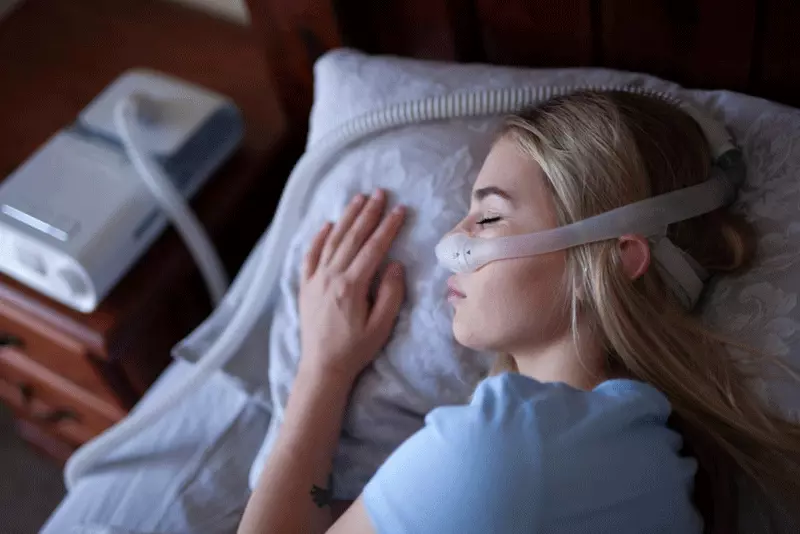Exposing Snoring Myths for a Better Night's Sleep
Jun 20th 2023
Snoring is a common sleep issue that affects many individuals. It occurs when airflow through the mouth and nose is partially obstructed during sleep, leading to the vibration of the surrounding tissues. Unfortunately, there are several misconceptions surrounding snoring, and it's important to debunk these myths to understand this nighttime annoyance better.
Top 5 Myths About Snoring
Myth 1: Everyone snores
Fact: While snoring is common, not everyone snores. Estimates suggest that about 40% of adults snore habitually, while the rest do not.
Myth 2: Snoring is not harmful
Fact: Snoring can indicate underlying health issues, including sleep apnea, associated with serious health risks if left untreated.
Myth 3: Only overweight people snore
Fact: Weight can contribute to snoring, but people of all body types can snore. Other factors like nasal congestion, alcohol consumption, and sleep position also play a role.
Myth 4: Alcohol before bed reduces snoring
Fact: Alcohol relaxes the muscles in the throat, increasing snoring. It can also worsen sleep apnea symptoms.
Myth 5: Snoring cannot be treated
Fact: Various treatment options are available for snoring, including lifestyle changes, positional therapy, oral appliances, and in some cases, surgery.
Debunking the Myths
Myth 1: Everyone snores
All individuals do not experience snoring. Many people sleep peacefully without any snoring sounds.
Myth 2: Snoring is not harmful.
Snoring can be more than just a nuisance. It can be a symptom of sleep-disordered breathing, including sleep apnea, linked to an increased risk of heart disease, stroke, and other health complications.
Myth 3: Only overweight people snore.
While weight can contribute, snoring is not exclusive to overweight individuals. Thin individuals can also snore due to nasal congestion, sleep position, or anatomical abnormalities.
Myth 4: Alcohol before bed reduces snoring.
Alcohol consumption before bed can relax the muscles in the throat, leading to increased snoring. Therefore, it is advisable to avoid alcohol close to bedtime, especially if you are prone to snoring.
Myth 5: Snoring cannot be treated.
Snoring can often be effectively managed or reduced through lifestyle changes such as weight loss, avoiding alcohol and sedatives before bed, sleep position adjustments, and anti-snoring devices.
The Health Implications of Snoring
Snoring can have significant health implications, and addressing the underlying causes is crucial. Chronic snoring can disrupt sleep quality, leading to daytime fatigue, irritability, and reduced cognitive function. It can also strain relationships and cause disturbances in bed partners' sleep. However, the potential health risks associated with snoring go beyond these immediate effects.
Snoring and Sleep Apnea:

Snoring is a common symptom of sleep apnea, where breathing is repeatedly interrupted during sleep. In addition, sleep apnea has been linked to an increased risk of high blood pressure, heart disease, stroke, and diabetes.
Cardiovascular Health:

The vibrations and intermittent oxygen deprivation associated with snoring can contribute to cardiovascular problems, including an increased risk of heart disease.
Mental Health:

Chronic snoring and sleep disturbances can lead to mood disorders such as depression and anxiety. In addition, sleep deprivation caused by snoring can also impair cognitive function and memory.
Identifying the underlying causes and seeking appropriate treatment to address the potential health risks associated with snoring is important. For example, suppose you or your partner are experiencing chronic snoring. In that case, consulting with a healthcare professional or sleep specialist who can provide an accurate diagnosis and recommend suitable interventions is recommended.
How to Manage or Stop Snoring
Fortunately, various strategies and lifestyle changes can help manage or reduce snoring. These include:
Maintain a Healthy Weight:

If you are overweight or obese, losing weight can often alleviate snoring by reducing the amount of tissue in the throat that may contribute to airway obstruction.
Sleep Position:

Sleeping on your side instead of your back can help prevent the collapse of the throat muscles and reduce snoring. Consider using pillows or positional devices to encourage side sleeping.
Avoid Alcohol and Sedatives:

Avoid alcohol and sedatives, which can relax the throat muscles and contribute to snoring.
Nasal Congestion Relief:

Addressing nasal congestion through saline nasal sprays, nasal strips, or a humidifier can improve airflow and reduce snoring.
Anti-Snoring Devices:

Several anti-snoring devices, such as nasal dilators, oral appliances, and chin straps, are available to help maintain an open airway during sleep. Consult with a healthcare professional to determine the most suitable option for you.
Quit Smoking:

Smoking can cause inflammation and irritation in the airways, increasing the likelihood of snoring. Quitting smoking can lead to improved overall health, including reduced snoring.
Seek Medical Intervention:
In cases where snoring is severe or accompanied by sleep apnea symptoms, it is essential to consult with a healthcare professional or sleep specialist. They can recommend advanced treatment options, such as continuous positive airway pressure (CPAP) therapy or surgical interventions.

It is important to note that the effectiveness of these strategies may vary depending on the individual and the underlying cause of snoring. Consulting with a healthcare professional can help determine the most appropriate approach for your situation.
When to See a Doctor
While occasional snoring is usually harmless, there are instances where it may indicate an underlying health issue or require medical intervention. Therefore, it is advisable to consult with a healthcare professional if:
- Your snoring is extremely loud and disruptive, disturbing your sleep and your partner's. You experience excessive daytime sleepiness, fatigue, or difficulty concentrating.
- You have been observed to stop breathing or gasp for breath during sleep.
- You experience chest pain, high blood pressure, or other cardiovascular symptoms.
- You have attempted lifestyle changes and home remedies without improvement.
- A healthcare professional or sleep specialist can assess your symptoms, conduct diagnostic tests, and provide appropriate treatment recommendations based on your needs.
Frequently Asked Questions
Can children suffer from snoring?
Yes, children can also suffer from snoring, often due to enlarged tonsils or adenoids. It's important to consult a pediatrician if your child snores regularly.
Does sleeping position affect snoring?
Yes, sleeping position can affect snoring. For example, sleeping on your back may increase the likelihood of snoring.
Are there medical treatments for snoring?
In some severe cases, medical treatments like CPAP machines, oral appliances, and surgery can be used to treat snoring.
Can I stop snoring permanently?
Snoring can often be reduced or eliminated with lifestyle changes, medical treatments, and in some cases, surgery. First, however, it's important to address the underlying causes of snoring.
Does snoring mean you're in a deep sleep?
No, snoring does not necessarily mean you're in a deep sleep. It's often a sign of obstructed airways, not the depth of sleep.
